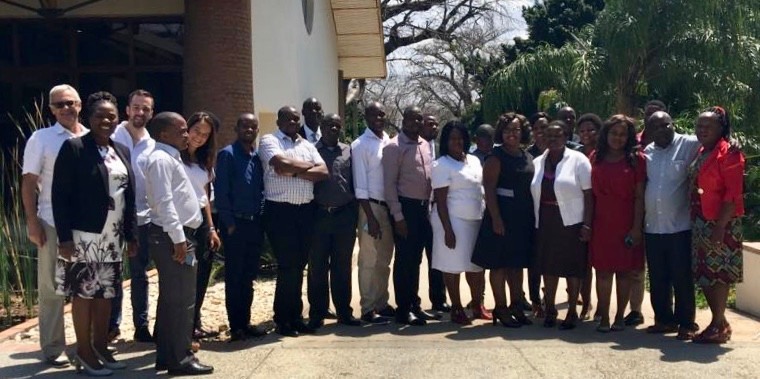Translating research into anti-corruption policies in Malawi

Dr Claudia Baez Camargo and Cosimo Stahl of the Basel Institute’s Public Governance division delivered a five-day training workshop to Malawi’s Anti-Corruption Bureau (ACB) in Lake Malawi in October 2018. The interactive workshop was part of the Basel Institute’s ongoing assistance to Malawi via the Tackling Serious and Organised Corruption (TSOC) programme funded by the UK Department for International Development.
The “Corruption Research Methods and Anti-Corruption Practice” workshop was specifically customised to the ACB Corruption Prevention and Public Education divisions and their mandate. Based on a preliminary needs assessment, the workshop was targeted at two specific TSOC programme objectives: strengthening the ACB’s research capacity and translating empirical research into actionable anti-corruption policies.
The novel format of this training workshop not only included presentations of prominent theories and concepts of corruption, but also an illustrative discussion of corruption-specific data collection techniques and research methods.
Group exercises and presentations were conducted after participants had analysed hypothetical risk scenarios and corruption causes that would fit the Malawian context in the real world. The purpose was to gain a thoroughly contextualised understanding of the root causes of corruption. This deeper understanding would then critically inform the design and logic of innovative and more effective anti-corruption policy interventions.
